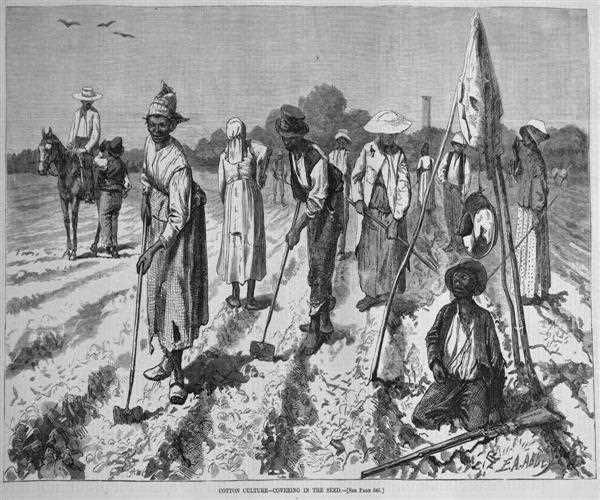Following its sanction by the imperative 75% of the states prior in the month, the Thirteenth Amendment is formally embraced into the U.S. Constitution, guaranteeing that "neither bondage nor automatic subjugation… will exist inside the United States, or wherever subject to their purview."

Prior to the American Civil War, Abraham Lincoln and different pioneers of the abolitionist subjugation Republican Party looked for not to cancel subjection but rather simply to stop its augmentation into new regions and states in the American West. This arrangement was inadmissible to most Southern government officials, who trusted that the development of free states would turn the U.S. control structure unavoidably against them. In November 1860, Lincoln's race as president flagged the withdrawal of seven Southern states and the arrangement of the Confederate States of America. Not long after his introduction in 1861, the Civil War started.
Lincoln, however, he secretly despised subjection, reacted mindfully to the call by abolitionists for the liberation of every American slave after the episode of the Civil War. As the war delayed, be that as it may, the Republican-overwhelmed government started to understand the key favorable circumstances of liberation: The freedom of slaves would debilitate the Confederacy by denying it of a noteworthy part of its work drive, which would thusly reinforce the Union by creating a flood of labor. With 11 Southern states withdrew from the Union, there were a couple of expert servitude congressmen to obstruct such an activity.
In 1862, Congress invalidated the outlaw slave laws, precluded subjection in the U.S. regions, and approved Lincoln to utilize liberated slaves in the armed force. Following the real Union triumph at the Battle of Antietam in September, Lincoln issued a notice of his plan to issue a liberation announcement for all states still in disobedience on New Year's Day.
That day– January 1, 1863– President Lincoln formally issued the Emancipation Proclamation, approaching the Union armed force to free all slaves in states still in resistance as "a demonstration of equity, justified by the Constitution, upon military need." These three million slaves were proclaimed to be "at that point, thenceforward, and perpetually free." The declaration exempted the fringe slave expresses that stayed in the Union and all or parts of three Confederate states controlled by the Union armed force.
On December 2, 1865, Alabama turned into the 27th state to sanction the Thirteenth Amendment, hence giving it the essential three-fourths dominant part of states' endorsement important to make it the rule that everyone must follow. Alabama, a previous Confederate state, was compelled to endorse the change as a condition for re-induction into the Union. On December 18, the Thirteenth Amendment was authoritatively embraced in the Constitution– 246 years after the primary shipload of hostage Africans arrived at Jamestown, Virginia, and were purchased as slaves.
Subjection's heritage and endeavors to defeat it remained a focal issue in U.S. legislative issues for over a century, especially amid the post-Civil War Reconstruction period and the African American social liberties development of the 1950s and '60s.